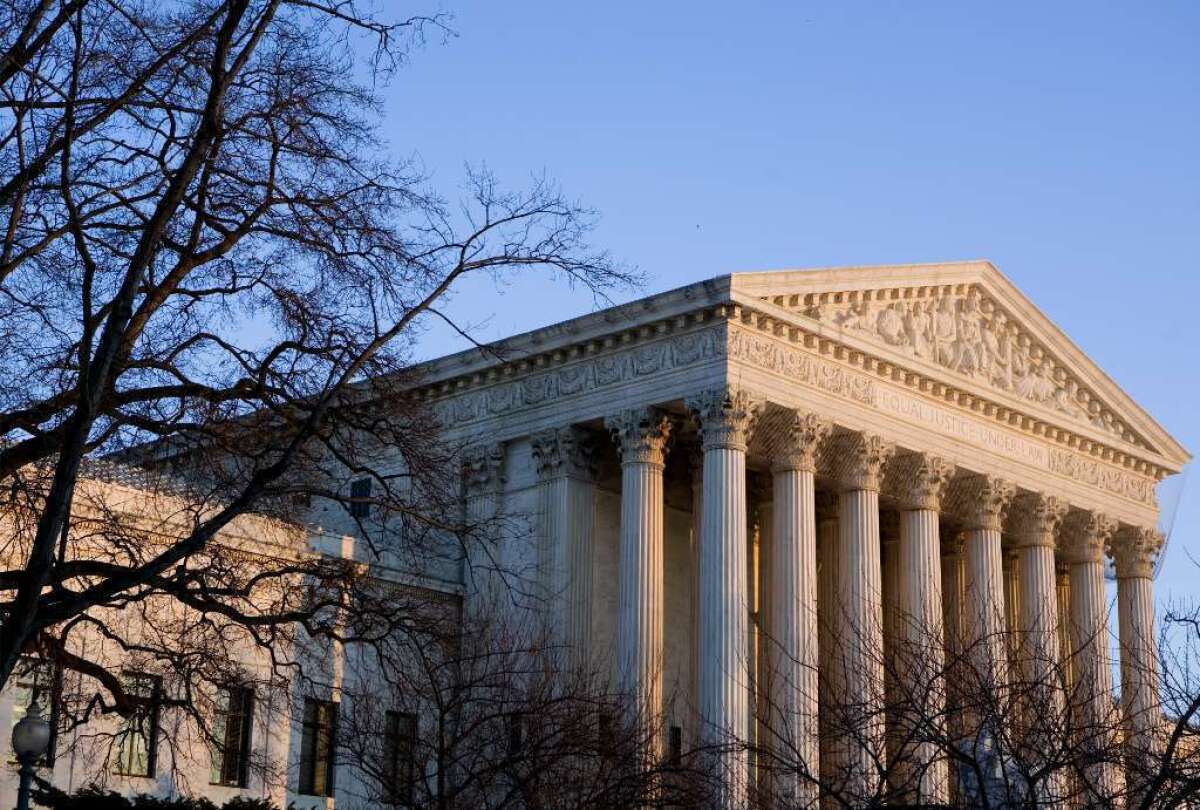Supreme Court to hear free speech case on anti-prostitution rule

- Share via
WASHINGTON — The Supreme Court agreed Friday to decide whether the 1st Amendment prohibits Congress from requiring that groups receiving funds to fight HIV and AIDS across the globe have a policy “opposing prostitution.”
The case, to be heard in the spring, is the latest test of how far the government can go to regulate a group’s speech as a condition of receiving public funds.
Since 2008, Congress has authorized the spending of $48 billion to combat HIV, AIDS, malaria and tuberculosis, and lawmakers have insisted this global effort include an attack on prostitution and sex trafficking. The spending law says organizations that seek funds must have a “policy explicitly opposing prostitution and sex trafficking.”
The Alliance for Open Society International, which is based in New York but works in Asia, sued to challenge the required statement involving prostitution. “Successful efforts to fight HIV/AIDS often involve organizing and working cooperatively with marginalized ‘high-risk’ groups, such as prostitutes,” its lawyers told the high court. Preventing HIV requires prostitutes to come for testing and treatment, and a public policy condemning prostitution is likely to drive them underground, they said.
A federal judge in New York blocked the disputed provision, and the U.S. 2nd Circuit Court of Appeals ruled in 2011 it was unconstitutional. Its judges said the 1st Amendment forbids “compelling [the group] to espouse the government’s viewpoint on prostitution.”
Obama administration lawyers urged the high court to take up the dispute in U.S. Agency for International Development vs. Alliance for Open Society International. They argued that when the government spends money to combat a problem, it should be able to ensure it is transmitting the message it intends to send.
The court also agreed to decide a potentially important issue involving suspects who refuse to talk to the police, in Salinas vs. Texas. Can a prosecutor tell a jury that a defendant on trial refused to answer questions from a police officer prior to his arrest?
In the famous Miranda decision, the court said suspects had a right to remain silent. In a separate ruling, the justices also said prosecutors may not point to a defendant’s failure to testify at his trial.
But the Texas courts ruled that a prosecutor was entitled to tell a jury that a defendant sat silently when he was asked questions by police officers investigating a shooting. The prosecutor said in his closing statement that an “innocent man” would have talked to the police and answered their questions.
Stanford law professor Jeffrey Fisher appealed on behalf of the Texas defendant and argued that judges across the country are divided on whether suspects have a right to remain silent prior to receiving their Miranda warnings.
More to Read
Sign up for Essential California
The most important California stories and recommendations in your inbox every morning.
You may occasionally receive promotional content from the Los Angeles Times.











